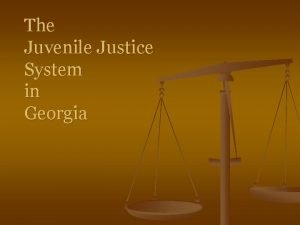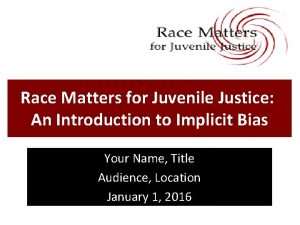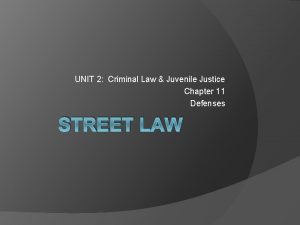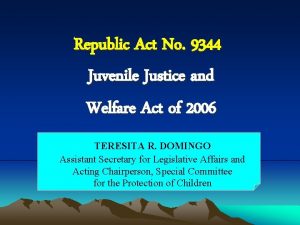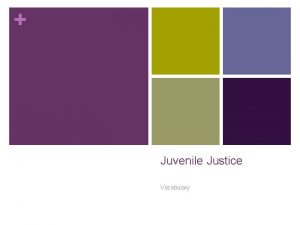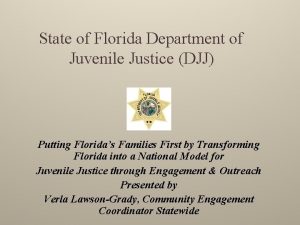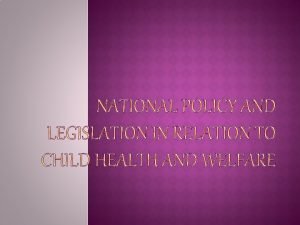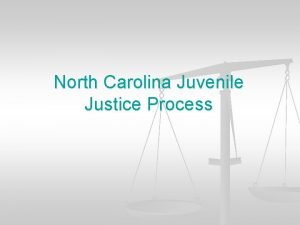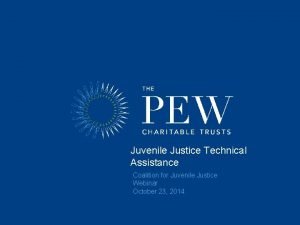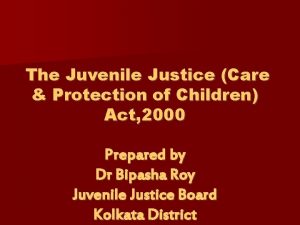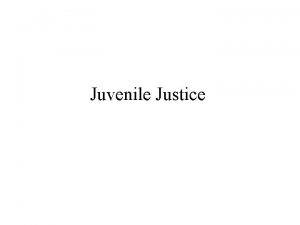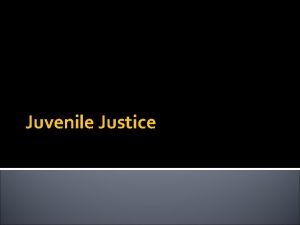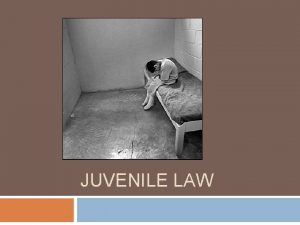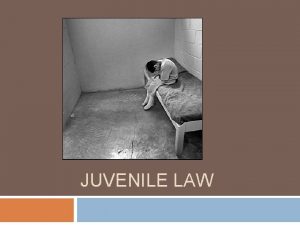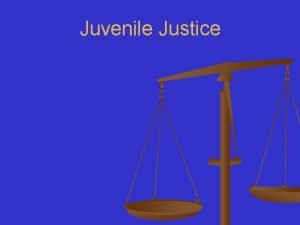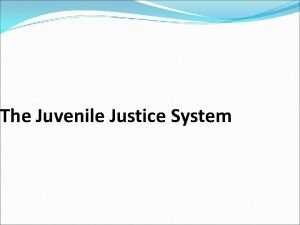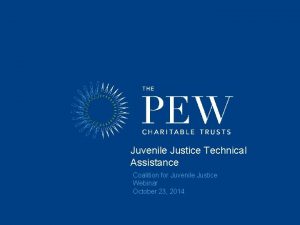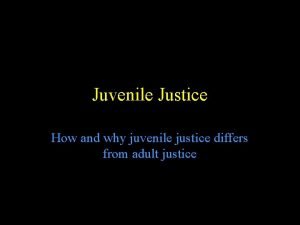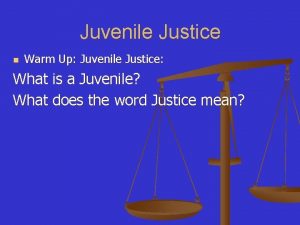Juvenile Justice in Georgia History of Juvenile Justice














- Slides: 14

Juvenile Justice in Georgia

History of Juvenile Justice System • Georgia’s first Juvenile Court established in Fulton County in 1911 • In 1950, the General Assembly established at state- wide system of juvenile district courts

Juvenile Court System • every county has a juvenile court • purposes: – help and protect children – ensure protection of children coming under their jurisdiction – provide care for children removed from their home • delinquent act: act that would be a crime if committed by an adult (example: burglary) • status offense: act that would not be a crime if committed by an adult (example: truancy, running away from home)

Young People and the Law (1 of 6) 1. What is truancy? (truant) Failure to attend school 2. What is a juvenile? Person under the age of 17 3. What are some special rules juveniles must follow? -Attend school until 16 -Cannot run away from home -Cannot possess alcoholic beverages -Must obey reasonable/lawful instructions from parents

Young People and the Law (2 of 6) 1. Why was the juvenile court system established? a. Help protect the well-being of children b. Ensure a child under jurisdiction of the court system gets care, guidance and control c. Provide care for children who are removed from their homes

Young People and the Law (3 of 6) Steps in the Juvenile Justice process: 1. Intake – court officer decides if there is evidence to support charges a. Not enough evidence = release b. If evidence (1) parental custody (2) detain 2. Detention – hearing within 72 hrs. (3 options) a. Dismiss b. Informal adjustment (min 90 day court supervision) (3 rd option is the next step)

Young People and the Law (4 of 6) Steps in the Juvenile Justice process: 3. Formal hearing – summons - adjudicatory hearing (like trial); no jury; if guilty there is 2 nd hearing; - dispositional hearing – punishment determined 4. Sentencing– EX: Release; Probation; Youth Development Center; Dept. of Juvenile Justice; Boot Camp; Restitution/Fines; Community Service; Counseling 5. Appeal (Optional)

Young People and the Law (5 of 6) Seven Deadly Sins Act: 1. Murder 2. Rape 3. Armed Robbery with a firearm 4. Voluntary Manslaughter 5. Aggravated sodomy 6. Aggravated child molestation 7. Aggravated sexual battery A 13, 14, 15 or 16 year-old MAY be prosecuted as an adult If they commit any of these crimes

Young People and the Law (5 of 6) Seven Deadly Sins Act: 1. Murder (Life with possible parole after 25 yrs, death) 2. Rape (Life w/o parole; MIN 25 yrs w/o parole) 3. Armed Robbery with a firearm (MIN 10 yrs w/o parole) 4. Voluntary Manslaughter (Felony 1 -20 yrs) 5. Aggravated sodomy (MIN 25 yrs w/o parole) 6. Aggravated child molestation (MIN 25 yrs w/o parole) 7. Aggravated sexual battery (MIN 25 yrs w/o parole) A 13, 14, 15 or 16 year-old MAY be prosecuted as an adult If they commit any of these crimes



AJC, Dec, 2013

Juvenile Rights (6 of 6) Same basic rights as adults: 1. Have case decided quickly (speedy trial) 2. Must be notified of charges 3. Protected against self-incrimination 4. Right to an attorney 5. Confront and question witnesses 6. Right to testify 7. Introduce evidence 8. Right to have parent/guardian present at all hearings

QUESTIONS
 Juvenile justice system georgia
Juvenile justice system georgia Juvenile justice system in georgia
Juvenile justice system in georgia Race matters for juvenile justice
Race matters for juvenile justice Chapter 11 basic concepts street law
Chapter 11 basic concepts street law Ra 9344
Ra 9344 Juvenile justice vocabulary
Juvenile justice vocabulary State of florida department of juvenile justice
State of florida department of juvenile justice Expulsion
Expulsion Juvenile justice act 2000
Juvenile justice act 2000 North carolina juvenile justice
North carolina juvenile justice Coalition for juvenile justice
Coalition for juvenile justice Minnesota juvenile justice system
Minnesota juvenile justice system Georgia history timeline 1877-1919
Georgia history timeline 1877-1919 History also history physical
History also history physical Juvenile act
Juvenile act
